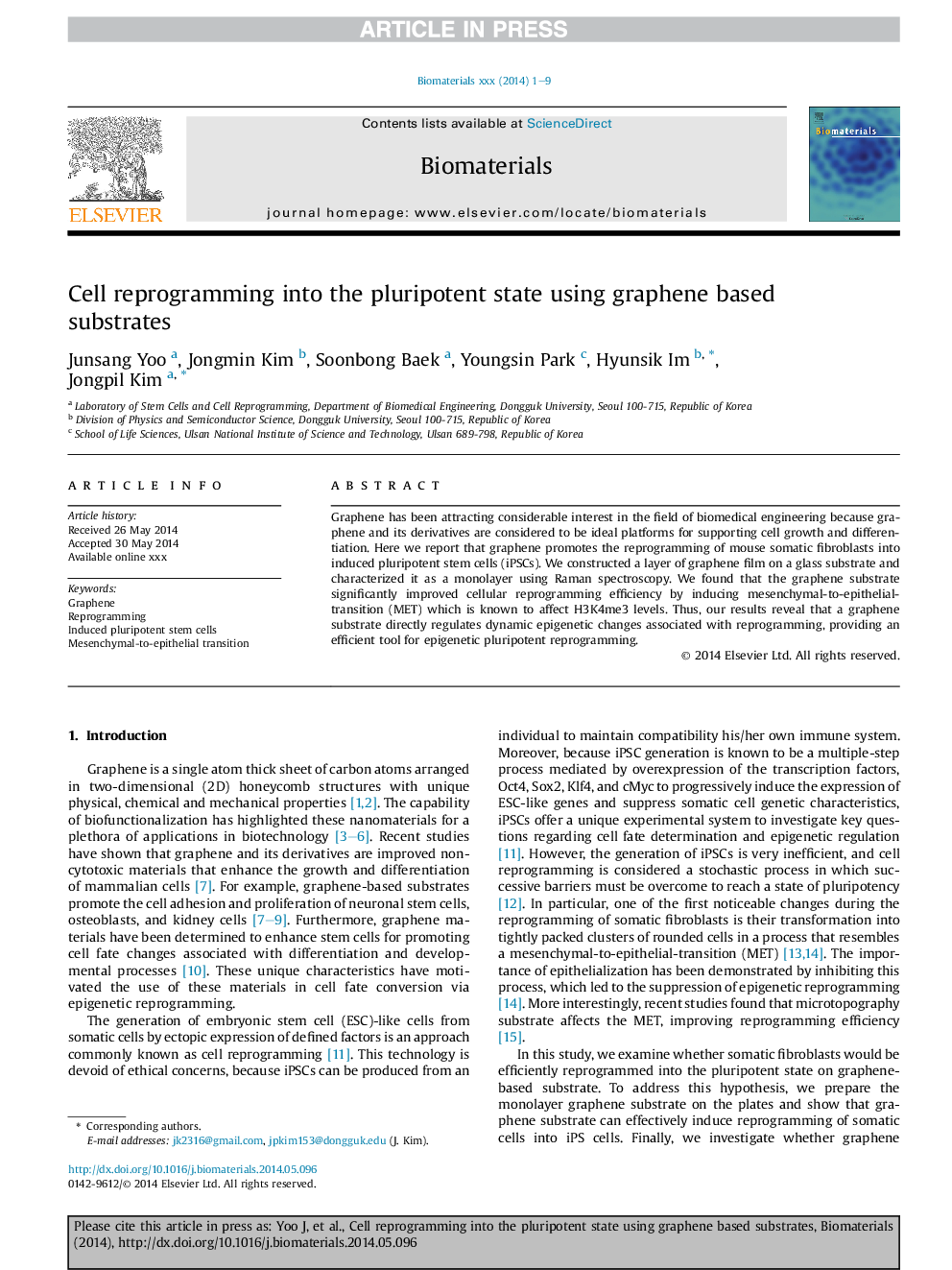| Article ID | Journal | Published Year | Pages | File Type |
|---|---|---|---|---|
| 10227292 | Biomaterials | 2014 | 9 Pages |
Abstract
Graphene has been attracting considerable interest in the field of biomedical engineering because graphene and its derivatives are considered to be ideal platforms for supporting cell growth and differentiation. Here we report that graphene promotes the reprogramming of mouse somatic fibroblasts into induced pluripotent stem cells (iPSCs). We constructed a layer of graphene film on a glass substrate and characterized it as a monolayer using Raman spectroscopy. We found that the graphene substrate significantly improved cellular reprogramming efficiency by inducing mesenchymal-to-epithelial-transition (MET) which is known to affect H3K4me3 levels. Thus, our results reveal that a graphene substrate directly regulates dynamic epigenetic changes associated with reprogramming, providing an efficient tool for epigenetic pluripotent reprogramming.
Related Topics
Physical Sciences and Engineering
Chemical Engineering
Bioengineering
Authors
Junsang Yoo, Jongmin Kim, Soonbong Baek, Youngsin Park, Hyunsik Im, Jongpil Kim,
